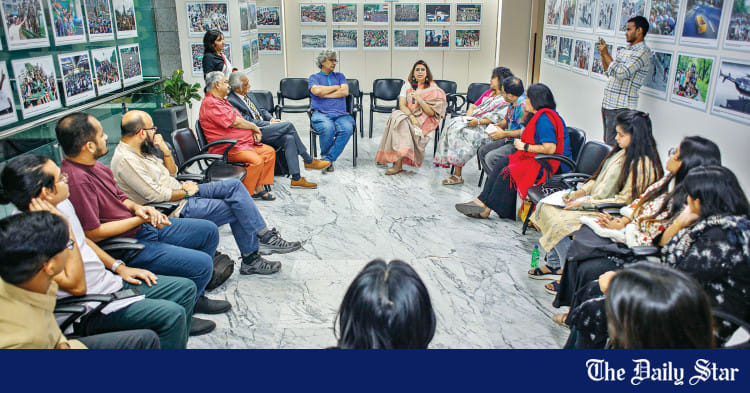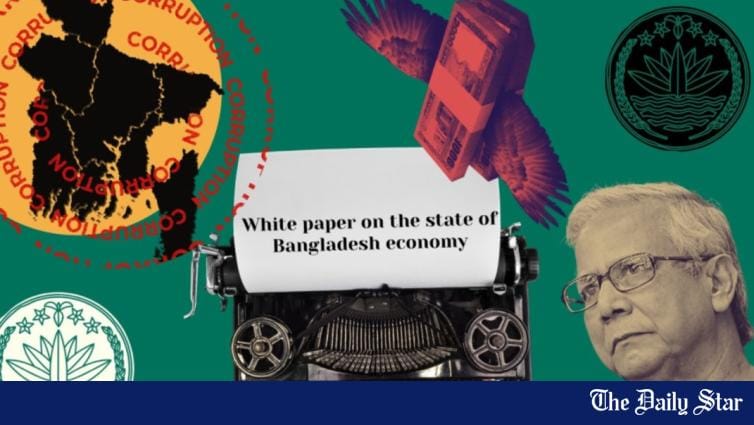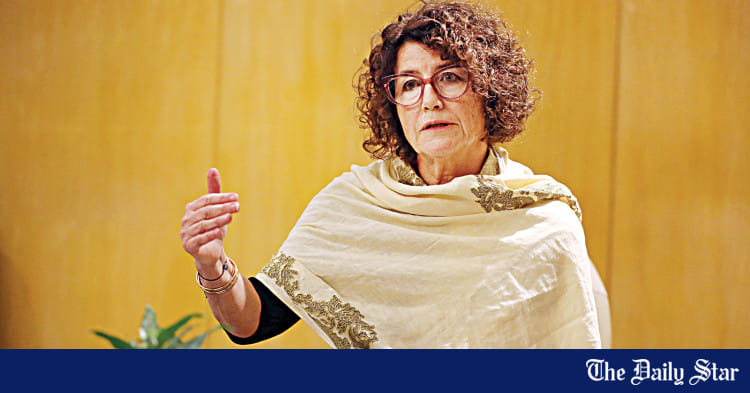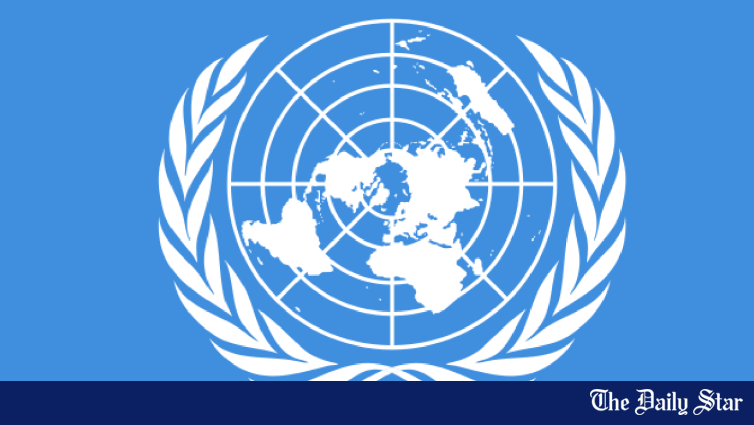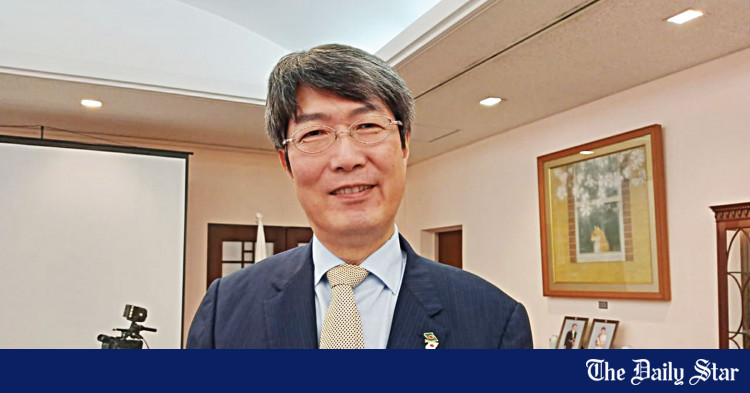Saif
Senior Member
- Joined
- Jan 24, 2024
- Messages
- 17,262
- Likes
- 8,334
- Nation

- Residence

- Axis Group


Don't worry about reforms, we will implement them: BNP's Amir Khosru
BNP leader Khosru Mahmud Chowdhury has stressed the need for political unity to support the interim government in ensuring a democratic transition of power. There is no need for others to worry about state reforms as the BNP is committed to implementing them, he said at the seventh national confer
Don't worry about reforms, we will implement them: BNP's Amir Khosru
Published :
Nov 30, 2024 13:43
Updated :
Nov 30, 2024 13:43

BNP leader Khosru Mahmud Chowdhury has stressed the need for political unity to support the interim government in ensuring a democratic transition of power.
There is no need for others to worry about state reforms as the BNP is committed to implementing them, he said at the seventh national conference of Gono Forum at the Engineers Institution Auditorium in Dhaka on Saturday.
The BNP leader accused those aligned with authoritarian powers of trying to destabilise the country through various means, reports bdnews24.com.
"Once authoritarian forces seize power by stripping the people of their autonomy and voting rights, they take away other rights as well," he said.
He referred to a string of recent events, including the Ansar revolts, incidents involving minorities, and unrest linked to autorickshaw drivers, that he alleged were aimed at creating instability.
"These activities are attempts to disrupt stability. Today, as we dream of building a new Bangladesh, political parties and the united populace must share a singular vision for the nation's future," Khosru added.
"We have removed the autocratic forces, but to fulfil the people’s expectations and aspirations, we must return to democratic norms collectively."
Khosru also addressed recent events that have stoked communal tensions, saying: "Incidents in the name of religion need to be analysed deeply. While I won’t claim communal issues don’t exist in Bangladesh, efforts to exaggerate and create instability must be thwarted. The destructive reactions seen abroad, such as attacks on Bangladesh's consulate in Kolkata, do not reflect the sentiments of the Bangladeshi people."
"We must ensure that external influences do not hinder our aspirations to build the Bangladesh of tomorrow. The only path forward is a peaceful, democratic process for transferring power, and everyone must unite behind this mission."
Khosru outlined his party's goal of restoring the people's democratic rights through elections.
"We presented a 31-point reform plan a year ago, which encompasses our vision for Bangladesh. It is this agenda that we pledge to implement as a national government after the elections."
"There’s no need to worry about reforms. We agree to make the necessary electoral and governance reforms based on a consensus of national unity. These changes can be implemented swiftly, ensuring power is returned to the people through elections."
Emphasising reforms to fulfil national aspirations, he added: "The upcoming national government will implement the 31-point agenda. This is a promise to the nation, and we are fully committed to realising it."
Published :
Nov 30, 2024 13:43
Updated :
Nov 30, 2024 13:43
BNP leader Khosru Mahmud Chowdhury has stressed the need for political unity to support the interim government in ensuring a democratic transition of power.
There is no need for others to worry about state reforms as the BNP is committed to implementing them, he said at the seventh national conference of Gono Forum at the Engineers Institution Auditorium in Dhaka on Saturday.
The BNP leader accused those aligned with authoritarian powers of trying to destabilise the country through various means, reports bdnews24.com.
"Once authoritarian forces seize power by stripping the people of their autonomy and voting rights, they take away other rights as well," he said.
He referred to a string of recent events, including the Ansar revolts, incidents involving minorities, and unrest linked to autorickshaw drivers, that he alleged were aimed at creating instability.
"These activities are attempts to disrupt stability. Today, as we dream of building a new Bangladesh, political parties and the united populace must share a singular vision for the nation's future," Khosru added.
"We have removed the autocratic forces, but to fulfil the people’s expectations and aspirations, we must return to democratic norms collectively."
Khosru also addressed recent events that have stoked communal tensions, saying: "Incidents in the name of religion need to be analysed deeply. While I won’t claim communal issues don’t exist in Bangladesh, efforts to exaggerate and create instability must be thwarted. The destructive reactions seen abroad, such as attacks on Bangladesh's consulate in Kolkata, do not reflect the sentiments of the Bangladeshi people."
"We must ensure that external influences do not hinder our aspirations to build the Bangladesh of tomorrow. The only path forward is a peaceful, democratic process for transferring power, and everyone must unite behind this mission."
Khosru outlined his party's goal of restoring the people's democratic rights through elections.
"We presented a 31-point reform plan a year ago, which encompasses our vision for Bangladesh. It is this agenda that we pledge to implement as a national government after the elections."
"There’s no need to worry about reforms. We agree to make the necessary electoral and governance reforms based on a consensus of national unity. These changes can be implemented swiftly, ensuring power is returned to the people through elections."
Emphasising reforms to fulfil national aspirations, he added: "The upcoming national government will implement the 31-point agenda. This is a promise to the nation, and we are fully committed to realising it."


































